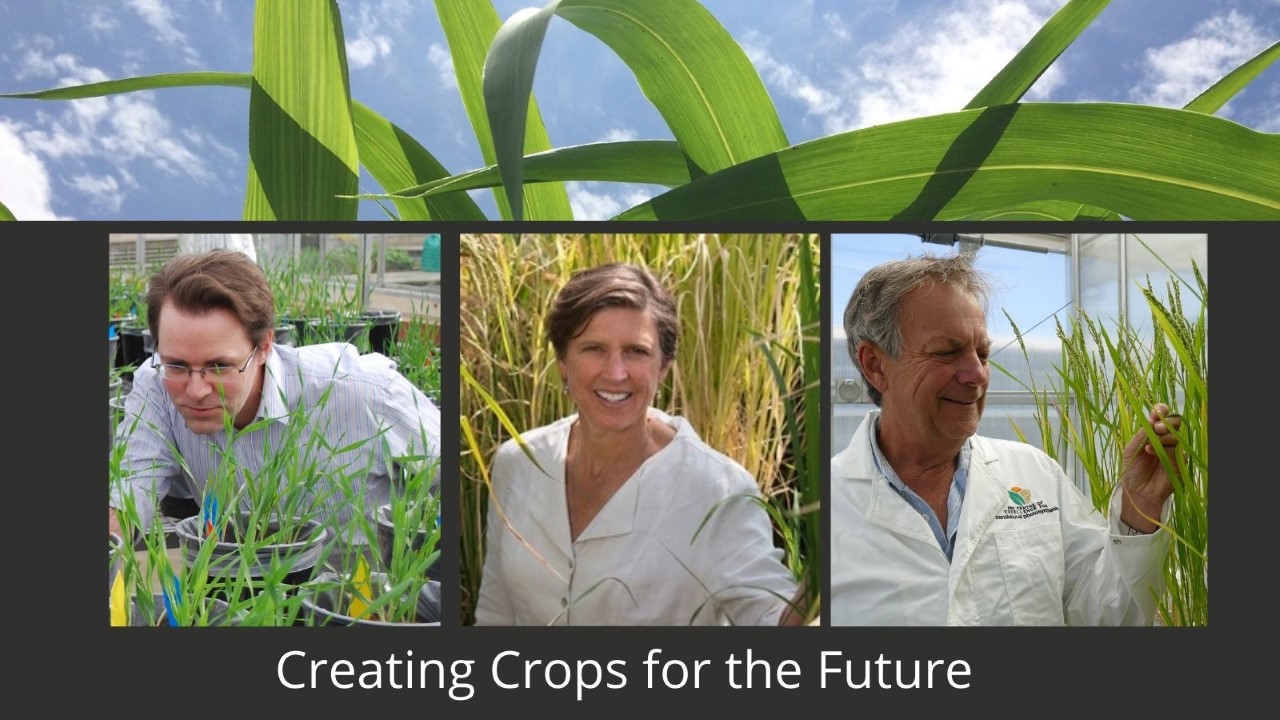Special Plantae Seminar - Creating Crops for the Future: Challenges, Technology and Sustainable Solutions
This event is presented by Plantae, and co-hosted by the ARC Centre of Excellence for Translational Photosynthesis and the ARC Centre of Excellence in Plant Energy Biology.
Speakers
Event series
Content navigation
Description

Speaker 1: Professor Pamela Ronald (UC Davis)
Title: Improving Food Security for the World’s Poorest Farmers: Rice Genetics and the Future of Food
Summary: How do we feed a growing population and engineer crops that are resilient to climate change? How do we fight crop diseases while reducing chemical sprays? How do we enhance the nutrition of staple food crops? The rapid advance of genetic technologies has provided new tools to address these questions, and they have already made an impact at a global scale. Professor Pamela Ronald will discuss advances in the genetic basis of plant microbe interactions and will describe development of climate-resilient rice varieties grown by more than six million subsistence farmers in India and Bangladesh.
Speaker 2: Professor Harvey Millar (ARC Centre of Excellence in Plant Energy Biology)
Title: Plant Energy Biology: Altering energy use efficiency in plants to enhance crop growth and yield.
Summary: After plants convert light energy into chemical energy, they then need to use it efficiently within cells to maximise growth and yield. To tap into this potential, global efforts to improve photosynthesis are being complemented by strategies to improve energy use within plants by considering the cost of major use processes and how they can be optimised, especially under harsh and changing environmental conditions. Such processes include respiratory function, stress signalling, ion transport and protein turnover. This presentation will review some of these strategies from their inception in model plants to the progress and challenges of their deployment in crops.
Speaker 3: Professor Robert Furbank (ARC Centre of Excellence for Translational Photosynthesis)
Title: Photons to Food: boosting photosynthesis to improve food crop yields
Summary: Photosynthetic traits have become a major focus for crop improvement in recent years as progress due to green revolution yield gains becomes exhausted. Global efforts to improve photosynthetic performance span from transgenic targeted approaches using synthetic biology to genome-phenome approaches to sieve out the very best germplasm for more traditional breeding and genome selection. This presentation reviews some progress and challenges from both approaches and attempts to look “over the horizon” to the future of crop breeding.
Location
Zoom webinar




